Interesting article from i09 written by Charlie Jane Anders regarding the upcoming Batman v. Superman and Captain America: Civil War films and how they appear to share the same general storyline (I noted this before as well), ie that the heroes have to account for the destruction they wrought in the previous movie(s).
Interestingly, the similarities only grow: We have a “true blue” patriot type character in Superman/Captain America fighting against a corporate billionaire/genius (in armor!) in Batman/Iron Man. All deal in some way with the concept of Superheroes representing a new form of fascism, at least according to Mr. Anders.
Anyway, the article’s link follows:
This year’s biggest superhero movies are all about America’s descent into fascism
While for most comic book heroes exist firmly in the realm of fantasy and wish-fulfillment, it is my belief we’ve gradually moved to the point where writers and audiences have taken a “realistic” view of what it means to have Superheroes.
One is tempted to say this began in the late 1960’s, particularly with the then hard-hitting Denny O’Neil/Neal Adams Green Lantern/Green Arrow stories which, among others, addressed issues of drug abuse…
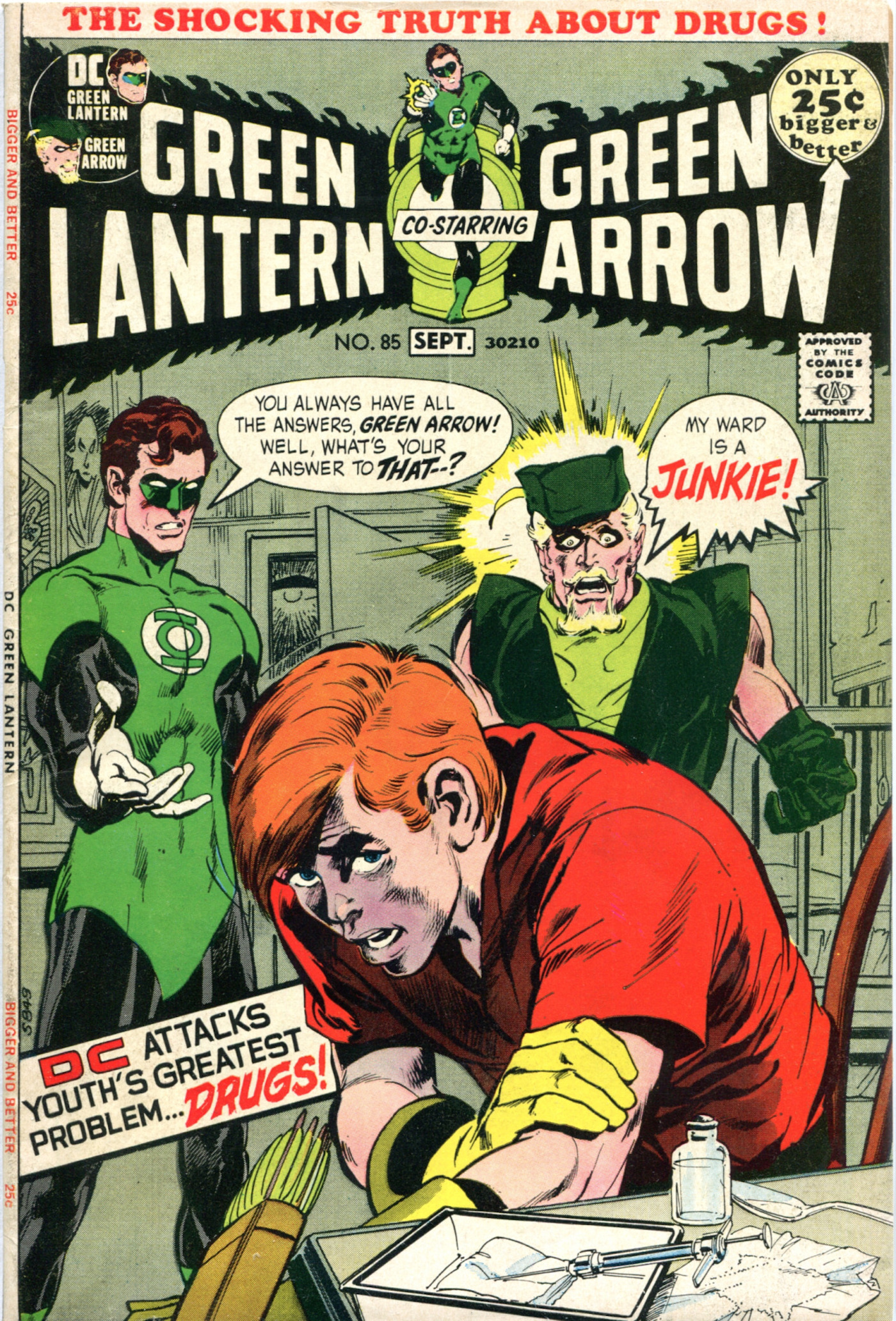
Religion…

And, in the very first story done by the duo, racial equality/racism…
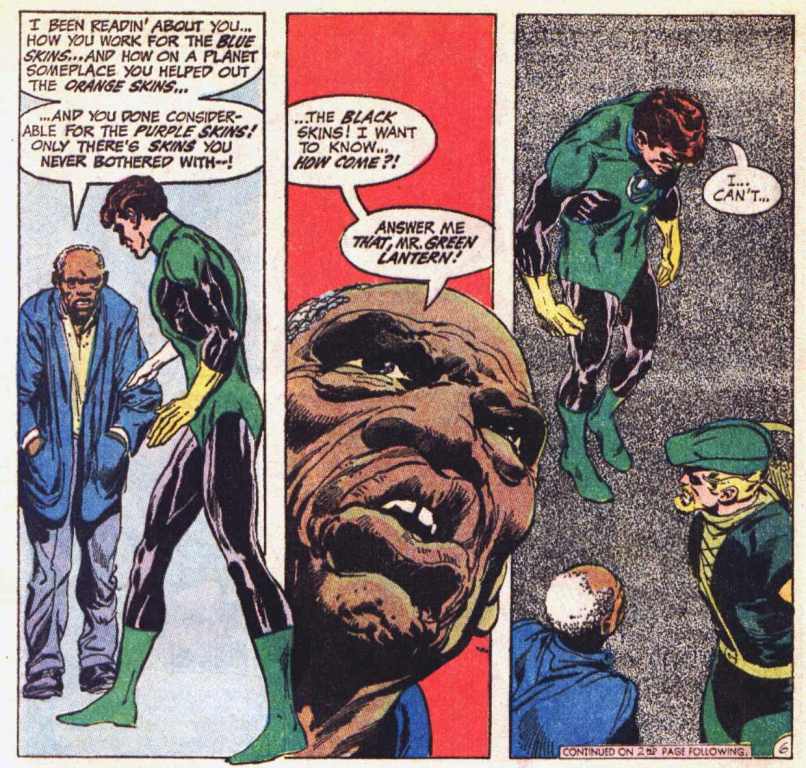
However, there has always been a sub-context of exploring the “reality” of superheroes in society. Stan Lee, Jack Kirby, Steve Ditko, et al in the early through the 1960’s established a relatively new view of superheroes via Marvel Comics by creating a somewhat cohesive universe where characters interacted and, at times, engaged in almost soap opera level loves.
However, one need not look too hard to see the first “real” interactions between Superheroes and society. The following images, presented in the very first Superman story which appeared in Action Comics #1 and were written and illustrated by Jerry Siegel and Joe Shuster, featured among other scenes the following:
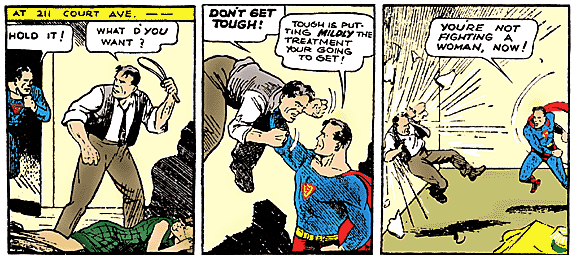
Yup, that’s a wife beater getting his just desserts. Then there was this, also from that very first Superman story:
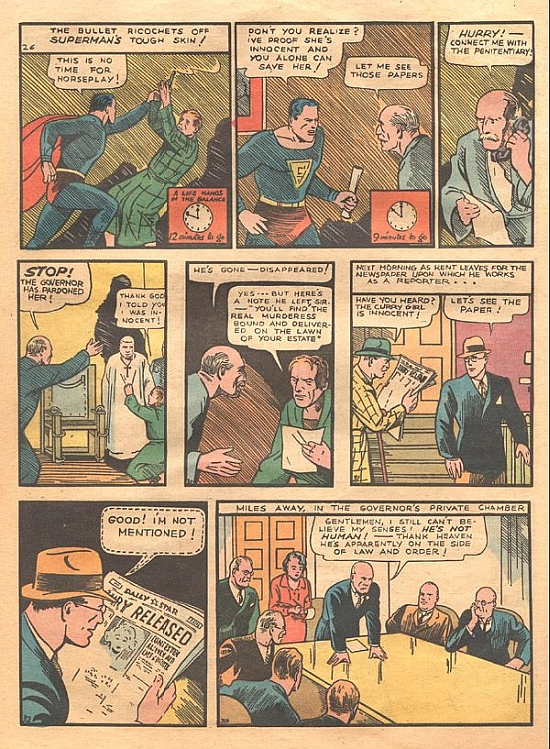
In the above scene, Superman forces himself into the Governor’s home and, eventually bedroom to get the man to call off an execution of an innocent woman!
After this start, however, comic book superheroes would take a step back from harsh realism and vigilante escapades…


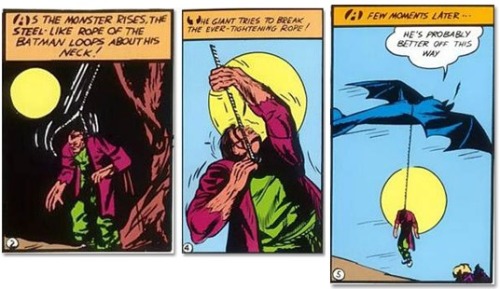
and featured less “heavy” themes and more garish, “fun” adventures. It was at this time that comic books became viewed as “children’s” literature, though there was always those who tried to move the art form back into a more adult realm.

With the 2013 release of the Superman movie Man of Steel, something else changed. The mass destruction presented at the end of the film was jarring to many viewers and director Zach Snyder appeared to make no effort to minimize the potential loss of human life in that movie’s climax.
While many were troubled by this, the fact is the Marvel movies, particularly the two Avengers films and Captain America: The Winter Soldier, also featured a startling level of large city-wide destruction, though they did make an effort to explain away/minimize/excuse the potential loss of human life.
It would appear, however, the destruction presented in Man of Steel not only made the makers of that film feel the need to address the topic but it also did the same for the makers of the Marvel/Disney films. Both Batman v. Superman and Captain America: Civil War appear to at the very least have similar concepts behind them: The idea that the destruction wrought by our heroes needs to be addressed and the heroes take different views on how to address them and ultimately clash.
As with so many things, there’s evolution of concept here. For now, this is where the creators of movies seem to want to go. In a few years, superhero movies might become passe and we might have new topics which engage the public. Or perhaps the more joyful “all ages” and/or campy superhero will re-emerge to the forefront (One can see some of this, especially the more joyful superhero, in The Flash TV series).
Regardless, for better or worse and for this summer film goers will deal with the destruction superheroes create and their impact on society…and fascism.
